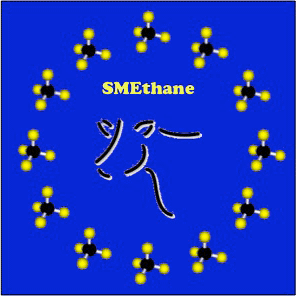Consejo Superior de Investigaciones Científicas - CSIC
CSIC is the largest public multidisciplinary research organisation in Spain. CSIC's mission is to promote, coordinate, develop, and disseminate multidisciplinary scientific and technological research in order to contribute to economic, social, and cultural development. Furthermore, it aims to train research personnel and provide advice to public and private institutions on subjects within its areas of expertise. Under the 6th Framework Programme, CSIC signed 418 contracts (37 as coordinators). CSIC is the 5th largest organisation in Europe in terms of project execution and funding. At national level one of the most outstanding CSIC Research Centres is Estación Experimental del Zaidín (EEZ, www.eez.csic.es). The group of Ruminant Nutrition at CSIC (Granada) has vast experience with the in vitro simulation of rumen fermentation, feed nutritional value studies for ruminants, rumen metabolism as a whole and in particular to methane production. In the last two decades the group has worked intensively on the effects on the digestion, metabolism and products quality of including non-conventional feedstuffs such as by-products in the ruminant diets, in order to minimize the cost of the ration and to increase the use of local resources for nutritional and healthy product production. The group has extensive experience in conducting in vivo experiments with dairy goats and sheep and was pioneer in Europe in the use of respirometry chambers to measure gas exchange in ruminants, including methane. The main facilities available in relation to the proposal include:
- Use of animals models (goats and sheep). Modern equipped facilities for meat and milk quality studies are also available.
- in vitro-simulation techniques, there are a range from simple in vitro batch cultures of mixed rumen microorganims, including the gas production system, to more complicated single-flow continuous culture fermentors with proven ability to simulate the rumen environment in a number of different feeding situations.
- Methane and CO2 measurement chambers (x4), as part of the facilities in the Institute and unique in Spain which allows us to study methane emissions by ruminants under different feeding strategies.
Staff involved:
- Dr. David R. Yáñez-Ruiz: is the project Coordinator and senior scientist specialized in the study of the rumen microbial ecosystem. It has been involved in 3 European projects and maintains dynamic scientific collaboration with several international research groups.
- Prof. Eduarda Molina Alcaide: is the research group leader with vast experience in the use of in vitro methods to evaluate the inclusion of local by-products in ruminants´ diets.
- Dr. Ignacio Martín García: is senior scientist and his research interests focus in developing and evaluating in vitro methods to simulate the rumen fermentation.
- Dr. Leticia Abecia Allende is postdoctoral researcher specialized in the use of molecular tools to the study of gut microbial ecosystems.
- Rafael Hueso Ibáñez is the Chief Technician and will provide technical support in the analysis of stability of additives.
- Rosa Frápolli provides administrative support to the Coordinator.
Web site: www.eez.csic.es
